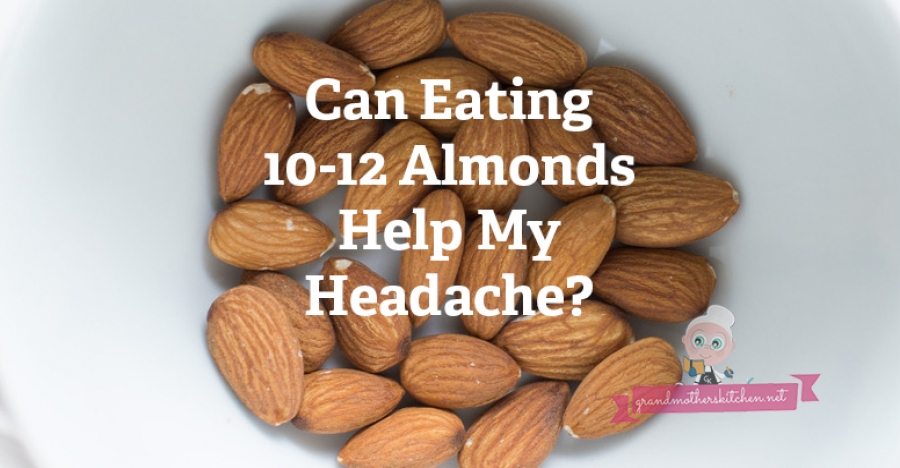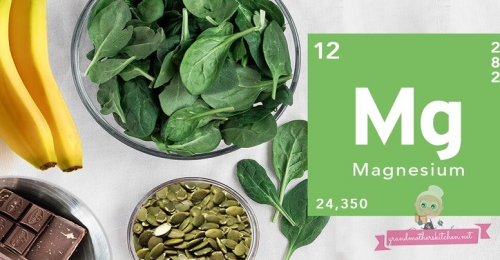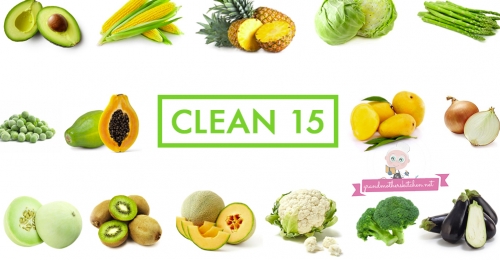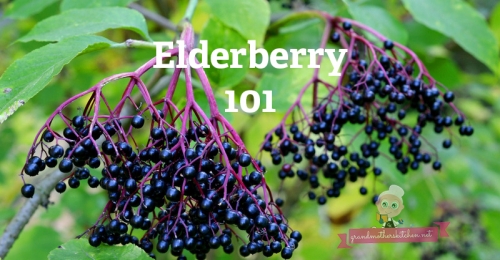Why is Nutrition so Confusing and Does Eating 10-12 Almonds Really Help Headaches?

About this Recipe
About The Author: Article written by Heidi Rasmussen, co-founder of Grandmother’s Kitchen, nutritionist (BSc Nutrition & Dietetics), yoga teacher (RYT), writer, and wellness researcher from British Columbia, Canada.
Why is Nutrition Information so Confusing
In University I completed a Bachelor of Science in Nutrition & Dietetics, so friends and family frequently ask me for advice about nutrition and my opinion on certain foods or diets that are hot in the media.
To be honest, food preparation is one of my favorite things to do, nutrition research is one of my favorite things to read about, but giving advice on diets and food trends is one of my least favorite things to talk about.
I have noticed that nutrition discussions are very similar to religious or political discussions in the passion, misinformation, differences in beliefs and often end in frustration or even anger about something as simple as butter.
Have you ever met someone who claims to have had a life changing experiences from a particular food addition or diet change, while at the same time knowing someone else who tells you the exact opposite about this food or diet. Why is this?
An Example: Can Eating 10 Almonds Cure a Headache
The reason I wrote this article is because I was browsing Facebook when an image popped up with a lovely picture of some raw almonds and a title that says to ‘Eat 10-12 Almonds a Day for Headaches”. Of course, this caught my interest because I love nuts and seeds and am always interested in food remedies.
I clicked on the link and it brought me to a non-health related website which unfortunately I can no longer locate. So I google image searched 10 almonds for headaches there are at least a few dozen links to Pinterest pins stating the same thing that 10-12 almonds will relieve headaches.
In the first article however, there was a sentence that stated that “Anecdotal evidence has some headache sufferers claiming that eating almonds daily has a cumulative effect. In other words, regular headaches might become less severe and/or disappear gradually with repeated consumption. In time, eating 10 to 15 almonds a day might give you relief from that jackhammer in your head.”
What is anecdotal evidence: Anecdotal evidence is evidence that is collected in a casual or informal manner and relying heavily or entirely on personal testimony. In other words, it has no formal clinical research.
As I continued to read the short article, there was a recommendation to learn more from a website of a TV famous pharmacist who appears on famous daytime TV show. The link was not direct to the information about almonds and headaches, but after some searching I was able to find her article that talks about foods that contain aspirin.
The article talks about how some foods contain the natural ingredient (salicylate) that aspirin is formulated from. I find it frustrating that ‘America’s Most Trusted Pharmacist’ does not provide references or more information to help readers understand the nutrition articles that are written. There are pictures with celebrities, books for sale, and possibly very good information, but no references to help someone do their own reading.
So I kept digging . . .
From my university and research time I have learned a valuable skill of not only how to track down original clinical studies, but also how to read through the initial intimidating medical jargon to find the results and conclusions.
The piece of the puzzle that helps us to understand the headline that “Eating 10-12 almonds can relieve headaches?” involves a compound called salicylate.
The reasoning behind the original headline of “10-12 Almonds Can Relieve Headaches” is because many foods have naturally occuring “salicylate”, which is a compound that was originally discovered in willowbark that was eventually formulated into Aspirin. The story of the discovery of aspirin is quite interesting and dates back 3500 years ago to when bark from the willow tree was used as a pain reliever and to reduce fever. If you are curious you can read more about where aspirin comes from. The active ingredient in willow bark was discovered in 1828 by Johann Buchner who first refined willow bark into yellow crystals and named it Salicin (after Salix, the genus of the willow tree).
For those of you curious, salicylates are chemicals that are naturally occuring in many plants, including certain fruits, vegetables, and herbs. In nature for plants, salicylates act as a natural immune hormone and preservative, and protect the plant from diseases, insects, fungi, and harmful bacteria. Salicylates can also be created synthetically and are used in medicine, perfume and preservatives. Learn more about what are salicylates?
I was unable to find any clinical studies specifically that compare headache relief from taking an Aspirin versus eating 10-12 almonds, so the headline is doing what most headlines do which is to extrapolate information and make bold statements based on correlations.
I am not saying that it is not entirely possible that almonds or other food high in salicylates to help to relieve headaches, but there is no real evidence for the very specific recommendation.
It couldn’t hurt to try almonds for headaches, right
Almonds are good for us, right? It couldn’t hurt to try them for headaches? I will leave my personal opinion about almonds for the conclusion of this article, however, what is confusing for anyone who is reading this information is that although almonds (and other food) do have naturally occuring salicylate that may have a pain relieving effect, there are also entire websites dedicated to helping people with salicylate sensitivities to avoid foods that are high in salicylate. Apparently, one of the symptoms of a salicylate allergy could be a headache. Learn more about what foods are high in salicylate.
Hmm… this makes it sort of difficult for headache sufferers to make a decision, don’t you agree?
Ingredients
Return to this Why is Nutrition so Confusing and Does Eating 10-12 Almonds Really Help Headaches? article or check out more recipes at Grandmother's Kitchen
The Truth About Headlines
Being a part of social media marketing, I know from personal experience that the more a headline can grab attention, the more likely for clicks and therefore traffic, revenue or selling a product, service or belief system.
Having spent time in research, I also know how easy it is to take a segment of a finding from a clinical study and word it in a way that is not necessarily false but certainly does not tell the whole story and inflate the findings in the direction that makes the best headline.
The undebatable truth is that news agencies (and now also social media and many websites) use headlines to sell.
What Websites Should I Use For Nutrition Information?
This is a tricky and controversial question with a range of discussion points. If you start to pay attention you will notice that most websites will say something about health and nutrition like it is a fact without any sort of references or back up for someone to look into. There are no teachers, like in high school, making sure that we reference our sources.
It is certainly not for everyone, but I tend to go to many different sources and always try to find the original clinical study to see what their results really were.
When I am researching a particular nutrition subject I spend a lot of time at the source where the clinical studies are posted such as: PubMed. Sometimes you can only read the abstract, but many of the articles have free links to the full study to read over. That being said, even the abstract will give much more accurate information than the headlines.
Full clinical studies can be rather intimidating, so some more user friendly sites worth bookmarking are Examine.com and Trip which can help make sense out of confusing clinical information.
Is Clinical Research Reliable?
Here lies the final crux to all of this. Even when you get down to the nitty gritty clinical research, it is not all the same. The truth is that some research is purposefully falsified, some research is purposefully biased by whomever is funding it, some research is interpreted wrong, and some is poorly designed to begin with.
Also, even when research is done with the most objective intentions, it also is usually only a small sample, conducted over a short period, is so clinical that it is hard to translate into real world, and often cannot possibly account for all the possible variables that could have an effect on the results.
Finally, even when research is at its peak of perfection, there are still individual differences from person to person for any substance that is ingested.
Thus, to answer the question...all of the above reasons are why nutrition advice is so confusing.
My Beliefs About Almonds and What to Do In This Time of Confusing Health Information
I cannot say almonds either relieve or cause headaches. I can only speak from my own personal evidence which is that I have never gotten a headache after eating almonds and I have never had a headache that almonds have helped to relieve, but I am not prone to headaches so am not the ideal test subject in the first place.
I will continue to eat almonds. As for nutrition advice, I can only really tell you what I personally do, which may or may not help you since we are likely different in some ways. I realize this is frustrating in a world where we really do want final easy answers to what can be complex questions with many possible answers.
I will continue to learn to listen to the subtleties of own body before, during and after I eat. This means eating in mindfulness and paying attention to how I feel after I eat certain foods. All I can really do is study my own body and how it reacts to the foods and other factors I provide it with.
I also will continue to eat most food in moderation, except of course for Chocolate Chip Cookies where I give myself complete permission to indulge.
Finally, I will continue to research nutrition and will revel when I find subjects where there is strong evidence to form new nutrition beliefs upon.
I will also believe in the resiliency of my own body no matter what I am eating, because I am starting to believe that perception and belief may be an important piece of so many puzzles.
If you want to learn more about how belief may affect biology I suggest watching The Biology of Belief by Dr. Bruce Lipton, which will spiral you deeper into the rabbit hole of what makes up reality.







